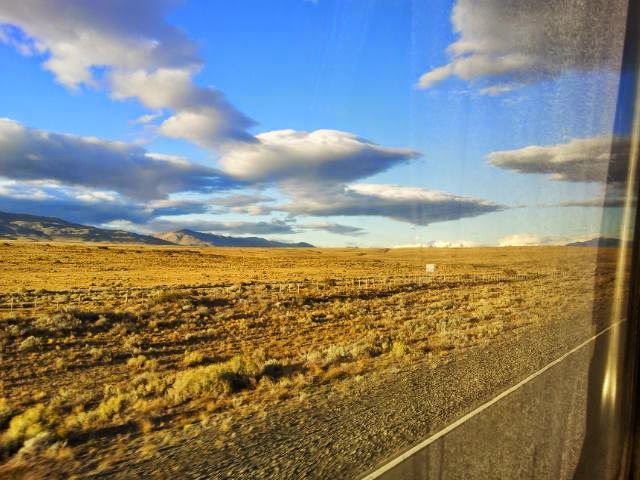“Happiness is only real when shared” was found carved into the bus in Alaska where Christopher McCandless spent his final days.
After he graduated from college, he rid himself of his belongings, burned his money, and set off, alone, to discover the world.
Despite humans’ strong inclination to stick by their family and friends, more and more people are traveling alone nowadays. It has many benefits that bring a deeper meaning to travel, and to life itself. A good majority of travel bloggers and writers I know prefer to go it alone; it is no longer taboo. Why is this?
The first, and most obvious, reason to travel alone is that you can do whatever you want. Maybe this seems selfish, but sacrificing where you want to go and what you want to see while abroad is travel blasphemy. You are on your own schedule, can stay at certain locations for whatever time period you desire, and do whatever activities strike your fancy. Not going to a museum because two of the four people you are traveling with don’t want to go? You’ll have none of this while traveling alone. You are in control of your itinerary and have no one to report to.
Similarly, while you are traveling alone, you can be yourself. Or, you can be your alter-ego; it’s up to you. In the book The Four Agreements, Don Miguel Ruiz discusses how all of us are conditioned by society and culture to behave, think, and be a certain way. When we travel alone, there is no one there who knows you and therefore insists you be who you are “supposed” to be.
You can remove yourself from all expectations, live in the moment, discover new lands, and possibly find out more about yourself than you thought existed. Solo travel tests your limits, puts you in situations that you ordinarily wouldn’t encounter, and pushes you to realize your potential in many ways.
Solo travel is beautiful journey of conquering your fears, exploring a different country, learning to accept solitude, and quite possibly getting to know the truest version of yourself to date. While on the road on my own, I find that I gain a clarity of mind that is almost impossible to obtain while leading a mundane life of routine. You learn to appreciate your surroundings, adapt to differing elements, interact with others, and focus on what is important in that moment. You are allowed to meditate on life and remove yourself from pointless chatter. When traveling alone, the opportunity to really immerse yourself in most cultures is greater than when you travel with others. This is for two reasons: One, people are more likely to reach out to you when you are on your own. You are less intimidating when by yourself, and people quite possibly feel sorry for you, thereby opening up to you.
I firmly believe in the kindness of strangers — that people want to help, that no one wants to see another human struggling. This is not to say that you’ll immerse yourself in another culture by means of pity. It simply means that many locals will be eager to give you directions, practice their English with you, feed you, and even open their homes to you. More often than not, locals are just as curious about you as you are about them.
The second reason why you can more successfully immerse yourself in a culture while traveling alone is that you are able to put everything you consider normal aside. Reminders of your home and culture, which are inevitable when traveling with family or friends, vanish. You are able to dive into a new way of life with a completely open mind, allowing you to soak in the food, language, customs, and behavior on a profound level. There is nothing holding you back from learning about this new culture and beginning to understand it from a local’s point of view.
You are not alone, actually
Lastly, traveling alone will make you discover that, ultimately, you are never alone. You are not the only person in the world who is brave enough to hop on a plane to discover another country that your inner circle may not even have heard of. There are many people from all over the world who are expats, relentless travelers, and world citizens.
As Pico Iyer mentioned in his TED Talk, “Where is Home?” there is a “nomadic nation” growing within the world. People no longer feel compelled to be “from” just one place; many consider the road their home. And therefore, solo travel exposes you to a wealth of people coming from one place and heading to another. They are seemingly neither here nor there, and the conversations you will have these international people will certainly broaden your perspective. Some may be forgettable, but others you will immediately bond with, potentially creating lasting friendships.
These are the many reasons why so many people opt to travel solo nowadays. This is not to say that there are no dangers involved, but rewards don’t come without risk. Traveling alone has greatly changed the person I am, and it was one of the best uncertainties I’ve ever embraced. And so, while I greatly identified with Chris McCandless, and I do believe in the comfort of others, there is a different sort of happiness that you discover when you travel alone. It is a happiness filled with confidence, acceptance, and knowing that, no matter what and no matter where, you can rely on yourself.





















